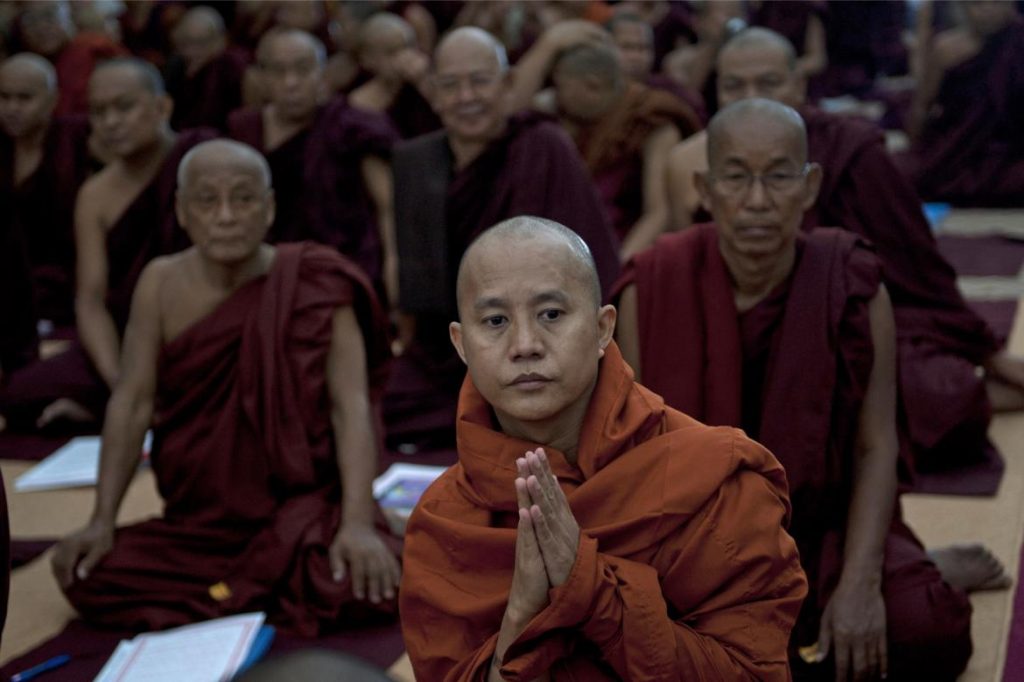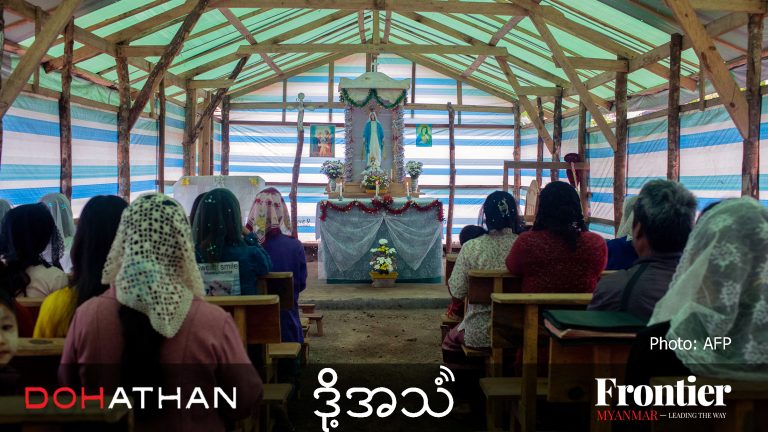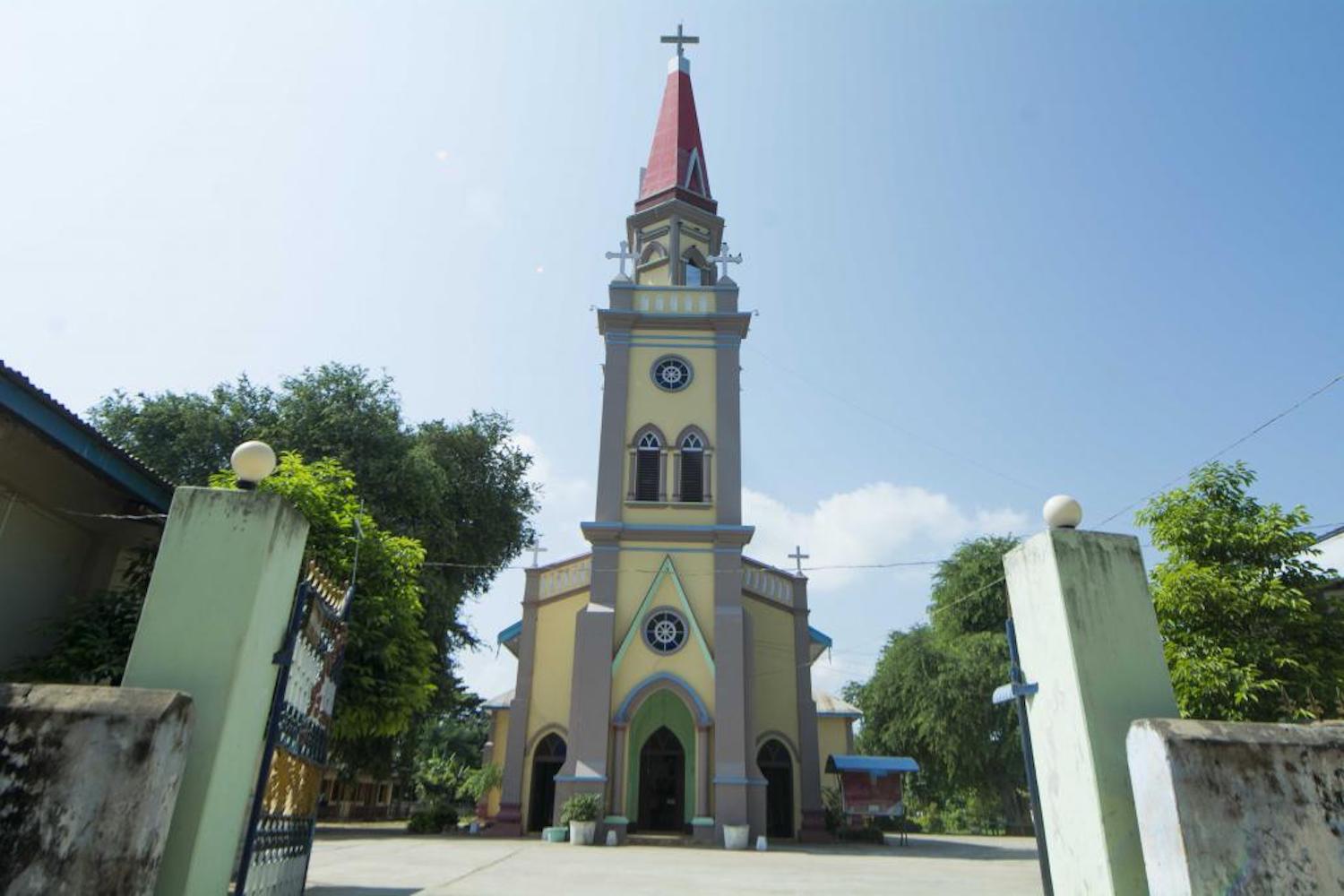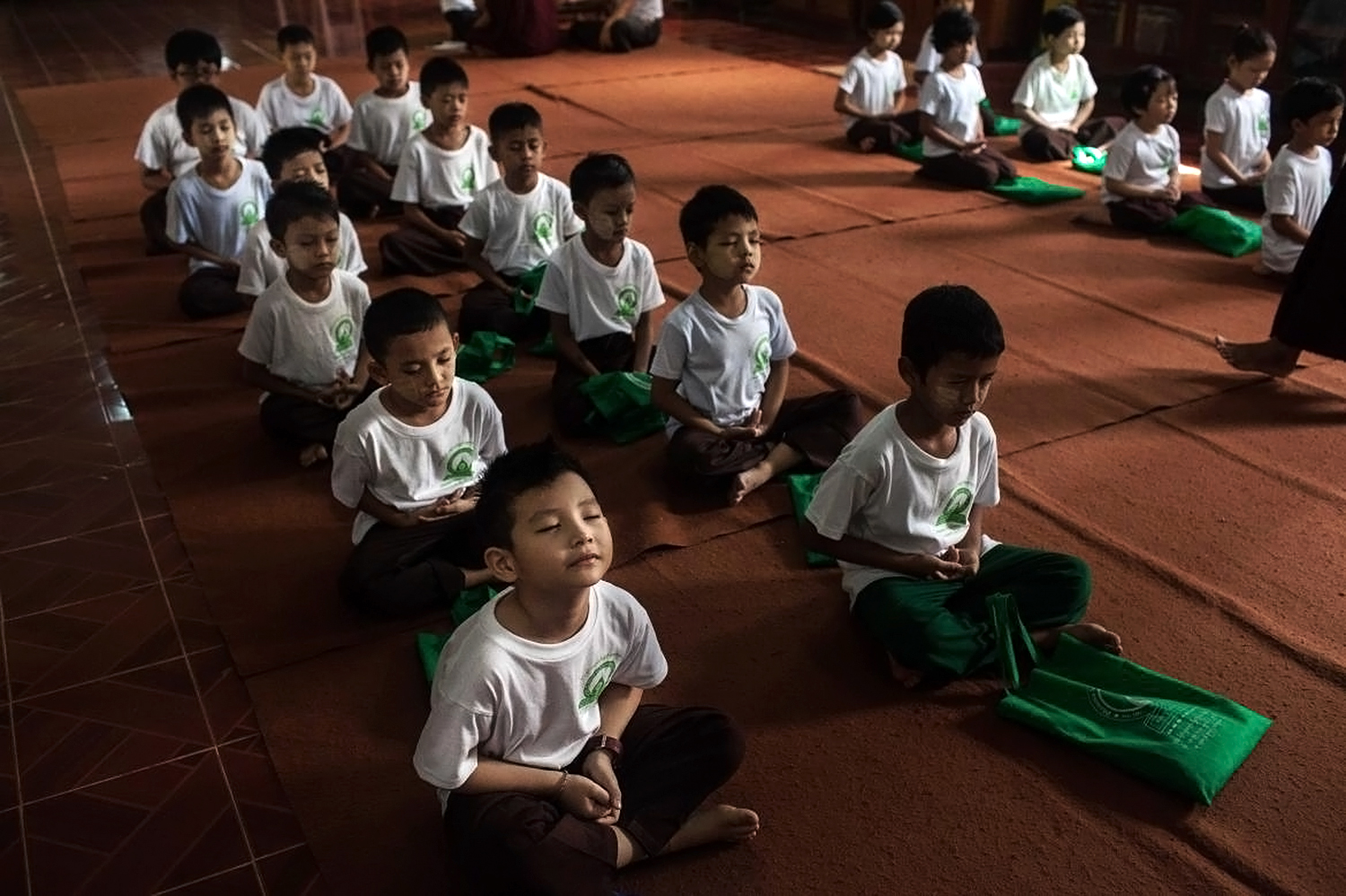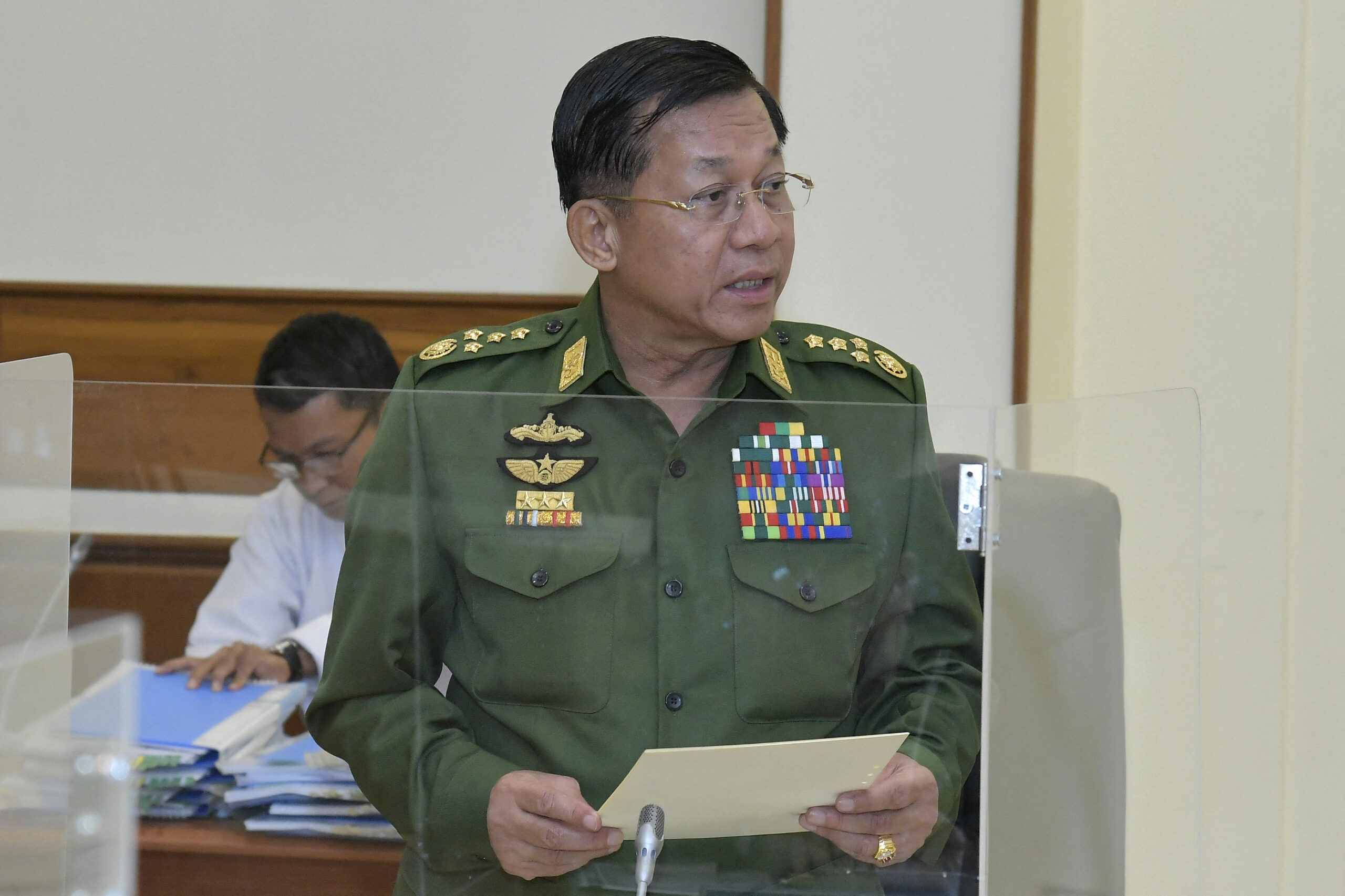YANGON — A war of words has erupted between senior National League for Democracy member U Win Htein and U Wirathu, a leading figure in the Buddhist nationalist Ma Ba Tha movement, over a violent video reenactment of an infamous murder that sparked statewide unrest in Rakhine State and led to the ongoing segregation of much of the state’s Muslim community.
On January 29th, U Wirathu posted to his Facebook account a video graphically recreating the 2012 rape and murder of Rakhine woman Ma Thida Htwe in Ramree Township at the hands of a group of Muslim men. U Wirathu told the Myanmar Times that the video was a trailer for a longer feature planned for release in the following months, with the intent of demonstrating to the incoming NLD government the need to “prioritise protecting the race and religion of the country”.
The video was viewed more than 100,000 times before it was pulled on Monday for violating Facebook’s community standards.
The following day, NLD spokesman and former political prisoner U Win Htein condemned the video in an interview with the Myanmar Times, questioning whether U Wirathu could rightfully be considered a monk and his motivations for publicising the video.
U Wirathu hit back on Wednesday evening, publishing a long denouncement on Facebook addressed to ‘U Win Htein, who didn’t protect race and religion’.
Support more independent journalism like this. Sign up to be a Frontier member.
“Even both of us are sacrificed for the country, our monks are better than you politicians,” he wrote. “Why do monks support me? Why do they respect me? If you think about that, you would understand. I can prove my character and morals are far better than politicians.”
U Wirathu also made reference to the time both men were inmates at Mandalay’s Obo Prison, claiming that political prisoners received better treatment than monks while their families were internationally feted.
Presented without comment alongside the post were a screenshot of the Myanmar Times article quoting U Win Htein and several pictures of U Win Htein’s daughter and her foreign husband, some of which included the couple’s infant child.
U Win Htein spent nearly two decades in prison in the wake of the 1988 uprising and subsequent military takeover in Myanmar. Amnesty International documented his subjection to a month-long period of torture soon after his first arrest in 1989, which left him with high blood pressure, migraines and inflamed vertebrae. He told the Financial Times last year he now required the use of oxygen tank to sleep at night.
Race and Religion
Common doctrinal interpretations of Theravada Buddhist lore, Myanmar’s Constitution and the Sangha Mahanayaka committee — the governing body for the country’s Buddhist clergy — all prohibit ordained monks from participating in politics.
This has not stopped leading members of Ma Ba Tha — also known by its English name, the Association for the Protection of Race and Religion — from intruding into politics, including the highlighting of alleged cases of criminal activity by Muslims, agitating for the passage of the so-called ‘race and religion’ laws to extend greater government control over marriage and conversions, and supporting the military-aligned Union Solidarity and Development Party during last year’s elections.
Ma Ba Tha’s members have often defended their activities by claiming the protection of the country’s ‘race and religion’ transcends the political realm.
The murder of Ma Thida Htwe, depicted in the initial video published by U Wirathu, has in recent years become a touchstone for a Buddhist nationalists claiming that Myanmar’s Muslim community poses a threat to the country’s government-recognised ethnic groups and Buddhist majority worship.
The week after Ma Thida Htwe’s death in May 2012, 10 Muslims travelling through Taungup were dragged from a bus and beaten to death by an angry mob — reportedly in the false belief that the perpetrators were among the group — who then set the corpses of the victims on fire. The violence in Rakhine quickly escalated, with Muslims disproportionately represented among the estimated 170 people killed in the following months. A further 140,000 Muslims were displaced by the end of 2012.
In 2014, Muslim shopkeepers were accused of the rape of a Buddhist woman in Mandalay, reports of which were spread on social media by Ma Ba Tha members, triggering three days of deadly riots in that city. The allegation was later found to be groundless, resulting in 21-year jail terms for five people convicted of spreading the false rumour.
The previous year, similar communal riots saw a Muslim orphanage razed to the ground in Meiktila, U Win Htein’s hometown and his constituency in the Pyithu Hluttaw until his retirement last year. In the aftermath, U Win Htein said he felt ashamed to be from the Mandalay Region town, leading to calls for his impeachment from Buddhist constituents.


